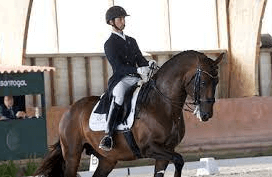
Introduction
Horse riding commentary plays a crucial role in equestrian sports, providing valuable insights and enhancing the audience’s understanding of the events. Whether you’re an aspiring commentator, an equestrian enthusiast, or just curious about the art of horse riding commentary, this comprehensive guide will take you through the intricacies of this unique skill. We’ll delve into the key aspects of horse riding commentary, offering valuable tips and techniques to help you become a proficient commentator. So, saddle up and let’s embark on this exciting journey into the world of horse riding commentary.
- Understanding the Basics
Before we dive into the specifics of horse riding commentary, it’s essential to grasp the fundamental concepts of the sport. Horse riding, also known as equestrianism, encompasses various disciplines, including dressage, show jumping, eventing, and more. Each discipline has its own rules, terminology, and nuances. To become an effective commentator, you must have a solid foundation in equestrian sports and understand the intricacies of each discipline.
- Developing Equestrian Knowledge
To excel in horse riding commentary, you need to immerse yourself in the world of equestrianism. Attend horse shows, competitions, and events to gain practical experience. Familiarize yourself with different horse breeds, riding styles, and the personalities of riders and horses. The more you immerse yourself in this world, the better equipped you’ll be to provide insightful commentary.
- Mastering Terminology
Equestrian sports have a rich vocabulary filled with specialized terms and jargon. As a commentator, it’s essential to master this terminology to effectively communicate with your audience. Familiarize yourself with terms such as “dressage,” “half-pass,” “oxer,” and “double clear.” Using precise language will enhance the quality of your commentary.
- Preparing for Commentary
Successful commentary requires thorough preparation. Before an event, research the participating riders and horses, their recent performances, and any noteworthy achievements. Familiarize yourself with the event’s schedule, rules, and objectives. Creating a script or outline can help you stay organized during the commentary.
- Engaging Your Audience
One of the key responsibilities of a horse riding commentator is to engage the audience and keep them informed and entertained. Share interesting anecdotes about the riders, their journeys, and the horses. Describe the riders’ techniques, the horses’ behavior, and the challenges they face. Paint a vivid picture with your words, allowing the audience to feel the excitement of the event.
- Maintaining Neutrality
Maintaining neutrality is paramount in horse riding commentary. Regardless of your personal preferences or biases, it’s crucial to provide fair and objective commentary. Avoid favoritism and ensure that your comments are balanced and respectful towards all participants.
- Enhancing Your Communication Skills
Effective commentary requires excellent communication skills. Practice your voice modulation, clarity, and pronunciation. Work on your storytelling abilities to captivate your audience. Listening to experienced commentators and seeking feedback can help you refine your communication skills.
- Staying Informed
Equestrian sports are dynamic, with new developments and trends emerging regularly. Stay informed about the latest news, rule changes, and advancements in the sport. This knowledge will make your commentary more insightful and relevant.
- Collaborating with Experts
Collaborating with experts in the field can elevate your commentary. Invite experienced riders, trainers, or judges to join you in the commentary booth for their expert insights. Their perspectives can add depth to your commentary and provide valuable context for the audience.
Conclusion
Horse riding commentary is a fascinating and rewarding skill that allows you to share your passion for equestrian sports with a broader audience. By understanding the basics, developing your equestrian knowledge, mastering terminology, and honing your communication skills, you can become a proficient commentator. Remember to stay neutral, engage your audience, and stay informed about the evolving world of equestrianism. With dedication and practice, you can become a valuable voice in the world of horse riding commentary, enriching the experience for both enthusiasts and newcomers to the sport.
Incorporate these tips and techniques into your journey, and soon enough, you’ll be confidently using your expertise in “horse riding commentary” to enhance the equestrian experience for all.
